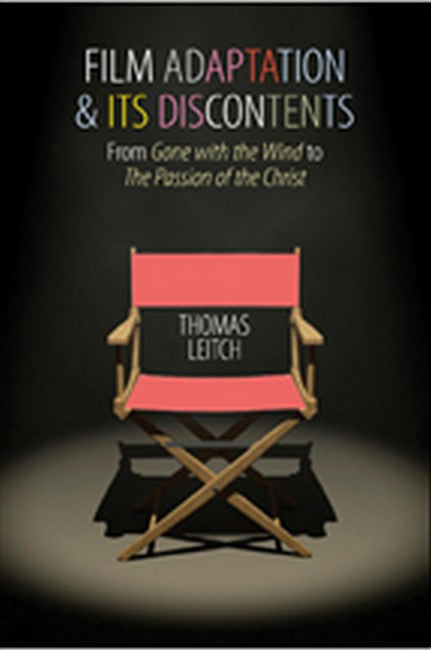Most books on film adaptationthe relation between films and their literary sourcesfocus on a series of close one-to-one comparisons between specific films and canonical novels. This volume identifies and investigates a far wider array of problems posed by the process of adaptation. Beginning with an examination of why adaptation study has so often supported the institution of literature rather than fostering the practice of literacy, Thomas Leitch considers how the creators of short silent films attempted to give them the weight of literature, what sorts of fidelity are possible in an adaptation of sacred scripture, what it means for an adaptation to pose as an introduction to, rather than a transcription of, a literary classic, and why and how some films have sought impossibly close fidelity to their sources. After examining the surprisingly divergent fidelity claims made by three different kinds of canonical adaptations, Leitch's analysis moves beyond literary sources to consider why a small number of adapters have risen to the status of auteurs and how illustrated books, comic strips, video games, and true stories have been adapted to the screen. The range of films studied, from silent Shakespeare to Sherlock Holmes to The Lord of the Rings, is as broad as the problems that come under review.''One of the best books ever written on the topic of motion-picture adaptations. It provides not only a full-scale theoretical and cultural map of the field but also a convincing argument for teaching students how to write and think critically. It was a joy to read.''James Naremore, Indiana University''I would highly recommend Leitch's study, in particular for its diversity and complexity. The author demonstrates that he is familiar with a large and heterogeneous corpus, including canonical as well as popular or marginal films and texts, which adaptation studies can only benefit from.''Thomas Van Parys, Image & Narrative''As a cogent summary and critique of film adaptation, this would be a good first book for newcomers to the subject . . . Highly recommended.''Choice''This convincingly argued and eloquently presented volume is replete with an array of accessible examples that provide an illustrative stylistic lightness of touch . . . whilst resisting any potential dilution of the underlying radical and important thesisa thesis which incontrovertibly advances and enhances our approach to adaptation studies on a number of highly original and insightful levels.''Journal of Adaptation in Film & Performance

